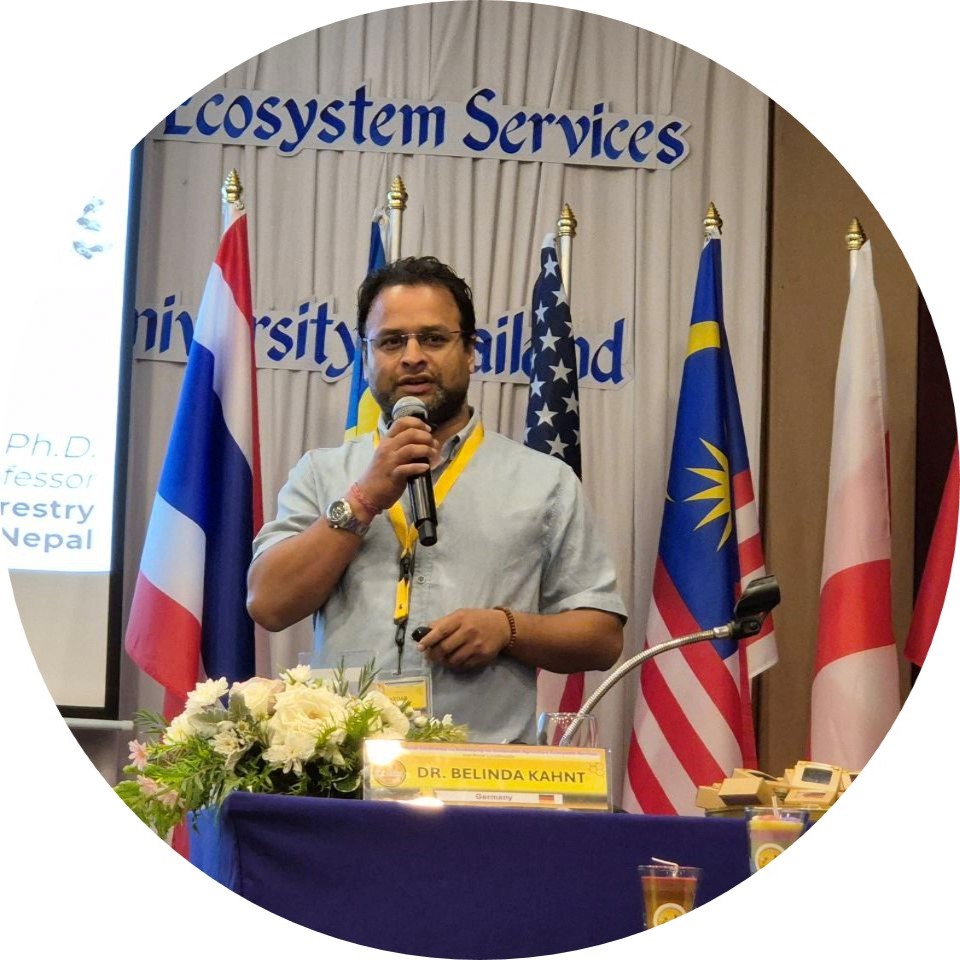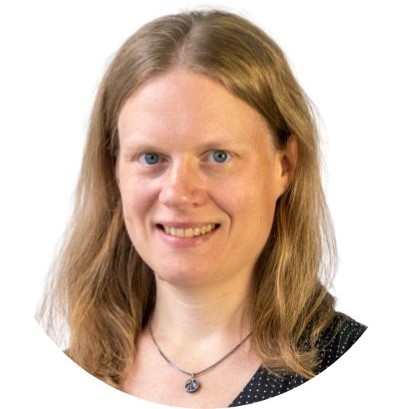Scientific Committee
Meet the members of the scientific committee
The Agri4D conference aims to bridge science, policy and practice to create a real-world impact on global food systems to help achieve the Sustainable Development Goal 2, Zero Hunger.
The scientific committee, responsible for the content in the three themes, consists of nine members from different backgrounds. You can read about them below.

Guénola Nonet, Ass. Professor
Guénola Abord-Hugon Nonet, Assistant Professor in sustainability leadership & strategy at Jönköping international business school researches our regenerative transition with industries, multi stakeholder engagement and also the needed transformations of business schools.
Guénola's doctoral thesis was awarded summa cum laude in 2013 about the necessary transformation of business schools to support responsible management. She manages several European research programs and is the former Chairwoman of the United Nations PRME Scandinavian network, former Board manager of Jönköping University Sustainability Network.
She currently represents Jönköping University SDGs task force at EULIST, she is a reviewer for Journal of Business Ethics and for The International Journal of Management Education.

Jennifer Batamuliza, Dr.
Dr. Jennifer Batamuliza is the Head of Data Driven Incubation Hub and Short Professional Courses at African Center of Excellence in Data Science, and the Program Lead for the programme Girls Empowerment at Mastercard Foundation Scholars Programme at University of Rwanda. She is also the Vice President for Rwandan Association for Women in Science and Engineering (RAWISE) and the Founder and CEO of RWA TECH HUB an organisation that trains and mentors girls in ICT.
Dr. Jennifer holds a PhD in Data Science with an option in Data Mining and a Master’s degree of engineering in computer science and technology. She is a DASCA certified senior big data analyst. Her research focuses on big data analytics, machine learning, cyber security, cloud computing and artificial intelligence. She has been awarded several times for her work on implementing girls and women in science and technology.
Theme 2

Elisabeth Rajala, Dr.
Elisabeth Rajala is a researcher at the Department of Animal Biosciences, SLU, with a background in veterinary medicine. Her expertise lies in veterinary public health, including food safety, food security, and infectious disease epidemiology. She earned her PhD in 2016, focusing on a zoonotic infection in Tajikistan, Central Asia. Currently, she is involved in interdisciplinary research projects across sub-Saharan Africa, Southeast Asia, Sweden, and Ukraine, addressing food security challenges and preparedness. Additionally, Elisabeth serves as the Programme Director for the Sida-funded initiative Agriculture for Food Security (AgriFoSe2030), which aims to bridge science, policy, and practice to support smallholder farmers in sub-Saharan Africa and Southeast Asia.

Horacio Gonda, Assoc. Professor
Horacio Gonda is Associate Professor at the Department of Applied Animal Science and Welfare, Swedish University of Agricultural Sciences (SLU), Uppsala, Sweden. His areas of expertise include energy and protein metabolism in dairy cows, ingestive behaviour in grazing ruminants and environmental impact (nitrogen and methane excretion/emissions) of animal production, as well as forage preservation. He is involved in research on development projects and methane emission from animal farming in low-income countries.

Kedar Devkota, Dr.
Dr. Kedar Devkota is an Assistant Professor at the Faculty of Agriculture, Agriculture and Forestry University (AFU), Nepal with extensive expertise in pollination, beekeeping, biodiversity, ecosystem services, climate change, agri-environmental policy, sustainable development, and agricultural production. Dr. Devkota has contributed to numerous publications in these fields, collaborating with leading researchers to enhance scientific understanding and promote evidence-based policies. His dedication to biodiversity conservation and agricultural sustainability continues to benefit both farmers and policymakers in Nepal and beyond.

Cecilia Sundberg, Assoc. Professor
Cecilia Sundberg is Associate Professor in bioenergy systems at the Department of Energy and Technology at SLU. Her research concerns climate impact and other environmental impacts from bioenergy, food, organic waste and biomaterials. In particular, she has a great interested in how biochar can improve the impacts from various complex systems, and the methods needed to quantify this.
She has research projects in Sweden, Kenya and Rwanda. She is also teaching in bioenergy, climate and sustainability at the Energy Systems Engineering programme.
Theme 3

Ronald Ndesanjo, Dr.
Ronald Boniphace Ndesanjo holds a PhD in Natural Resource Assessment and Management from the University of Dar es Salaam, Tanzania. With over 15 years of research experience in Climate Change, Environment, and Sustainability, his interests include climate adaptation and mitigation, the water-energy-food nexus, carbon forestry, large-scale agricultural investments, smallholder livelihoods, the Blue Economy, and natural resource management. He is currently a Lecturer at the Institute of Development Studies, University of Dar es Salaam. Previously, he was a research associate in the Resilience Ecology Programme at Aga Khan University, Nairobi, Kenya.

Thomas Daum, Assoc. Professor
Thomas Daum is Associate Professor at the School of Global Studies, University of Gothenburg, Sweden. His research focuses on sustainable agricultural transformation and natural resource management in Africa and Asia, with a particular focus on the role of innovations and governance. Thomas Daum completed his PhD and habilitation at the Chair of Social and Institutional Change in Agricultural Development at the University of Hohenheim, Germany. He has worked as a consultant for various international organizations, including the International Maize and Wheat Improvement Center (CIMMYT), the Food and Agriculture Organization (FAO) of the United Nations, and the World Bank.
Photo: John Sage Munkondia

Hanna Sinare, Dr.
Dr Hanna Sinare is a researcher at Stockholm Resilience Centre, Stockholm University. She has conducted research related to sustainable development in agri-food systems in dryland West Africa (Burkina Faso, Senegal, Mali) for 15 years, including on landscape multifunctionality, landscape and climate change, youth experiences in rural areas, and cross-scale interactions. Her current work is focused on transdisciplinary co-production processes for sustainable development, including a wide range of actors.
Dr Sinare holds a BSc in Biology and a MSc in Soil and Water Management from the Swedish University of Agricultural Sciences, and a PhD in Natural Resources Management from Stockholm University.
Photo: Johannes Ernstberger